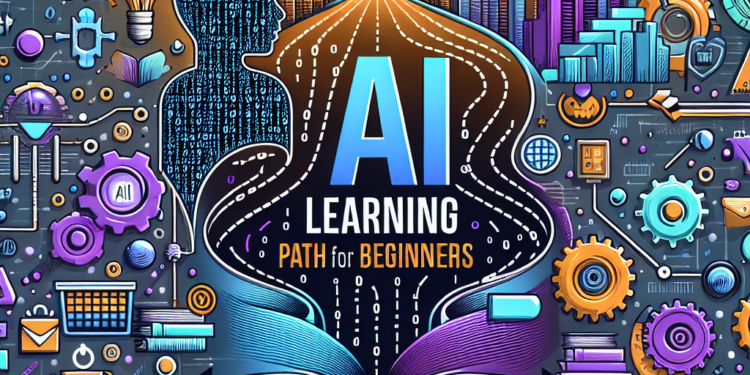Artificial Intelligence (AI) is a rapidly growing field that has the potential to transform industries and everyday life. With the increasing demand for AI professionals, there has never been a better time to learn about this exciting technology. However, diving into the world of AI can be overwhelming for beginners, as it involves a deep understanding of complex algorithms and programming languages.
To help beginners navigate the world of AI, we have put together a comprehensive AI learning path that covers all the essential topics and resources needed to start a career in AI. This learning path is designed to provide a step-by-step guide for beginners to gradually build their knowledge and skills in AI.
1. Introduction to Artificial Intelligence
Before diving into the technical aspects of AI, it is important to have a basic understanding of what AI is and its applications in the real world. Begin by exploring the history and evolution of AI, as well as the different types of AI such as machine learning, neural networks, and deep learning.
There are many online resources and courses available that provide a comprehensive introduction to AI, such as Coursera’s “AI for Everyone” course by Stanford University or the “Introduction to Artificial Intelligence” course on Udemy.
2. Mathematics for AI
Mathematics is the foundation of AI, as many AI algorithms are based on mathematical principles. Brush up on your knowledge of linear algebra, calculus, and probability theory, as these are essential for understanding how AI algorithms work.
There are numerous resources available to help beginners learn mathematics for AI, such as Khan Academy’s linear algebra and calculus courses, or MIT OpenCourseWare’s Introduction to Probability and Statistics course.
3. Programming Languages for AI
Python is the most popular programming language for AI, as it has a wide range of libraries and tools that are specifically designed for machine learning and data analysis. Learn the basics of Python programming, as well as popular libraries such as NumPy, Pandas, and Scikit-learn.
There are many online tutorials and courses available to help beginners learn Python for AI, such as Codecademy’s Python course or the “Python for Data Science and Machine Learning Bootcamp” on Udemy.
4. Machine Learning
Machine learning is a branch of AI that focuses on developing algorithms that can learn from data and make predictions or decisions without being explicitly programmed. Learn about the different types of machine learning algorithms, such as supervised learning, unsupervised learning, and reinforcement learning.
There are many resources available to help beginners learn machine learning, such as Andrew Ng’s “Machine Learning” course on Coursera or the “Machine Learning A-Z™: Hands-On Python & R In Data Science” course on Udemy.
5. Deep Learning
Deep learning is a subfield of machine learning that focuses on algorithms inspired by the structure and function of the brain’s neural networks. Learn about deep learning concepts such as artificial neural networks, convolutional neural networks, and recurrent neural networks.
There are many resources available to help beginners learn deep learning, such as the “Deep Learning Specialization” by Andrew Ng on Coursera or the “Deep Learning A-Z™: Hands-On Artificial Neural Networks” course on Udemy.
6. Natural Language Processing
Natural Language Processing (NLP) is a branch of AI that focuses on enabling computers to understand, interpret, and generate human language. Learn about NLP concepts such as tokenization, part-of-speech tagging, and sentiment analysis.
There are many resources available to help beginners learn NLP, such as the “Natural Language Processing in Python” course on Udemy or the “Natural Language Processing Specialization” on Coursera.
7. Reinforcement Learning
Reinforcement learning is a type of machine learning that focuses on training agents to interact with an environment in order to maximize a reward. Learn about reinforcement learning concepts such as Markov decision processes, Q-learning, and deep reinforcement learning.
There are many resources available to help beginners learn reinforcement learning, such as the “Reinforcement Learning Specialization” on Coursera or the “Practical Reinforcement Learning” course on Udacity.
8. Real-World Projects
Put your knowledge and skills to the test by working on real-world projects that apply AI techniques to solve practical problems. Start with simple projects such as building a machine learning model to predict house prices or using NLP to analyze customer reviews.
There are many resources available to help beginners find AI project ideas, such as Kaggle’s datasets and competitions or GitHub’s repository of AI projects.
9. Online Communities and Forums
Join online communities and forums dedicated to AI, where you can connect with other beginners, ask questions, and share your knowledge and experiences. Some popular AI communities include the r/MachineLearning subreddit, the Deep Learning AI group on Facebook, and the AI section on Stack Overflow.
By following this comprehensive AI learning path for beginners, you can gradually build your knowledge and skills in AI and start a rewarding career in this exciting field. Remember to stay curious, keep learning, and never be afraid to experiment and make mistakes. Good luck on your journey to becoming an AI professional!













